Yashodhara Haribhakta
BERTopic for Topic Modeling of Hindi Short Texts: A Comparative Study
Jan 07, 2025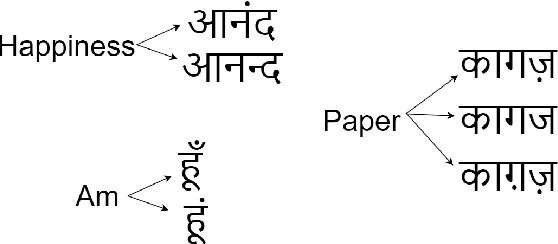
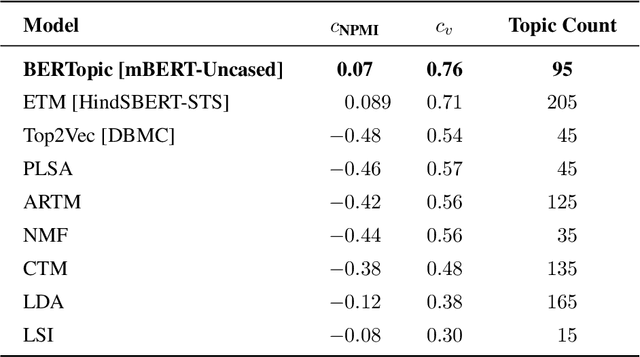
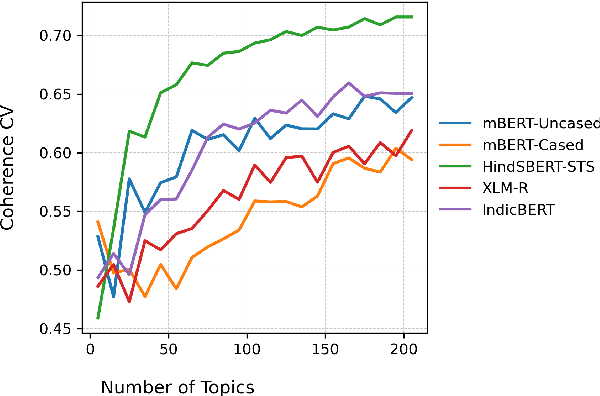
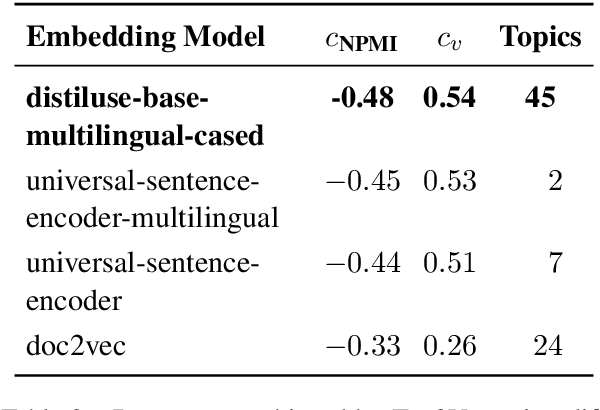
Abstract:As short text data in native languages like Hindi increasingly appear in modern media, robust methods for topic modeling on such data have gained importance. This study investigates the performance of BERTopic in modeling Hindi short texts, an area that has been under-explored in existing research. Using contextual embeddings, BERTopic can capture semantic relationships in data, making it potentially more effective than traditional models, especially for short and diverse texts. We evaluate BERTopic using 6 different document embedding models and compare its performance against 8 established topic modeling techniques, such as Latent Dirichlet Allocation (LDA), Non-negative Matrix Factorization (NMF), Latent Semantic Indexing (LSI), Additive Regularization of Topic Models (ARTM), Probabilistic Latent Semantic Analysis (PLSA), Embedded Topic Model (ETM), Combined Topic Model (CTM), and Top2Vec. The models are assessed using coherence scores across a range of topic counts. Our results reveal that BERTopic consistently outperforms other models in capturing coherent topics from short Hindi texts.
Leveraging Knowledge Graphs for Orphan Entity Allocation in Resume Processing
Oct 21, 2023Abstract:Significant challenges are posed in talent acquisition and recruitment by processing and analyzing unstructured data, particularly resumes. This research presents a novel approach for orphan entity allocation in resume processing using knowledge graphs. Techniques of association mining, concept extraction, external knowledge linking, named entity recognition, and knowledge graph construction are integrated into our pipeline. By leveraging these techniques, the aim is to automate and enhance the efficiency of the job screening process by successfully bucketing orphan entities within resumes. This allows for more effective matching between candidates and job positions, streamlining the resume screening process, and enhancing the accuracy of candidate-job matching. The approach's exceptional effectiveness and resilience are highlighted through extensive experimentation and evaluation, ensuring that alternative measures can be relied upon for seamless processing and orphan entity allocation in case of any component failure. The capabilities of knowledge graphs in generating valuable insights through intelligent information extraction and representation, specifically in the domain of categorizing orphan entities, are highlighted by the results of our research.
Graph based Question Answering System
Dec 05, 2018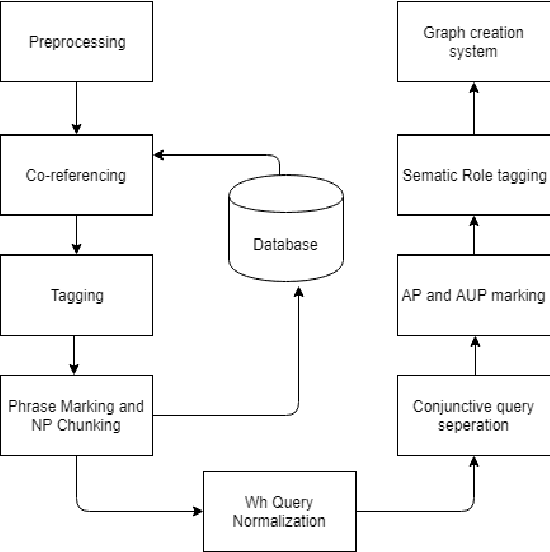
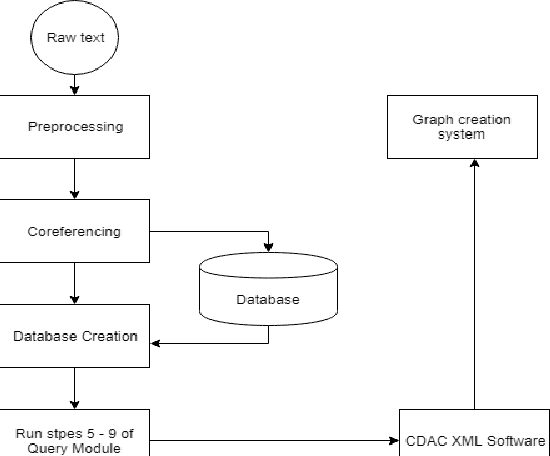
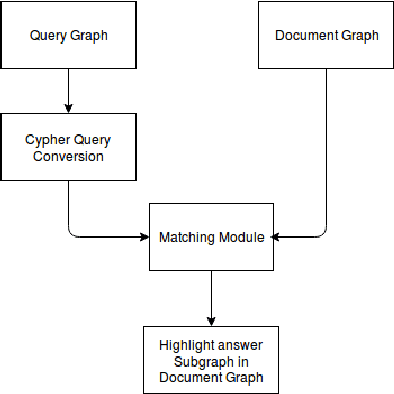
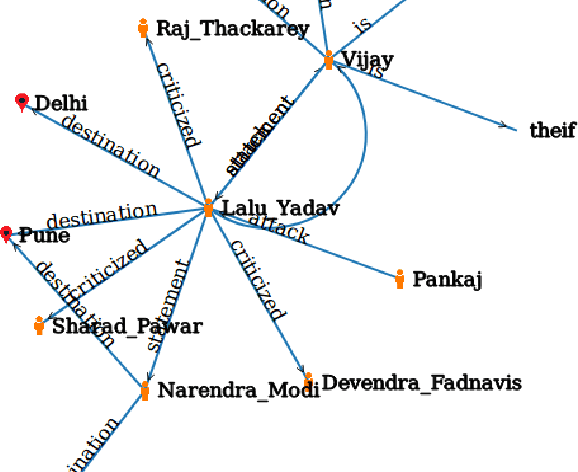
Abstract:In today's digital age in the dawning era of big data analytics it is not the information but the linking of information through entities and actions which defines the discourse. Any textual data either available on the Internet off off-line (like newspaper data, Wikipedia dump, etc) is basically connect information which cannot be treated isolated for its wholesome semantics. There is a need for an automated retrieval process with proper information extraction to structure the data for relevant and fast text analytics. The first big challenge is the conversion of unstructured textual data to structured data. Unlike other databases, graph databases handle relationships and connections elegantly. Our project aims at developing a graph-based information extraction and retrieval system.
 Add to Chrome
Add to Chrome Add to Firefox
Add to Firefox Add to Edge
Add to Edge